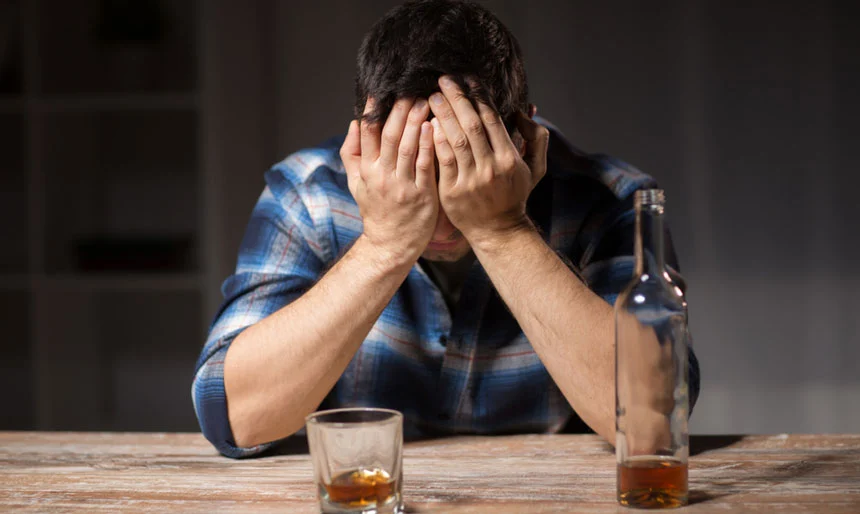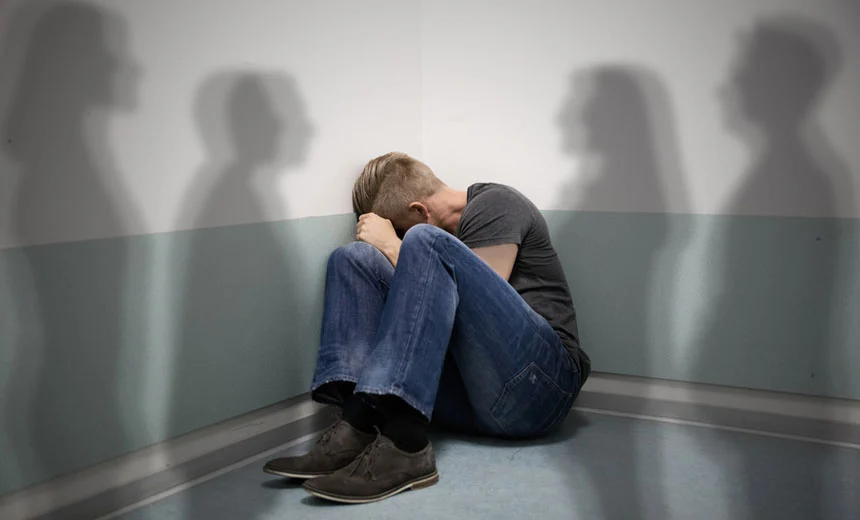Understanding and Overcoming Alcohol Induced Psychosis
For some people, their worst experience with alcohol was dealing with a hangover after a night of heavy drinking. However, there are those that have a much more tremulous relationship with this substance, including those who have experienced alcohol-induced psychotic disorder.
Alcoholic psychosis is no laughing matter, and those who have suffered from this condition can attest to the serious toll it takes. Unfortunately, many people continue to drink while unaware of the serious consequences alcohol can have on their physical and mental health.
Keep reading to learn more about alcohol psychosis, and how you can find substance abuse treatment services with Find Addiction Rehabs today.
What is Alcohol-Related Psychosis?
Alcoholic hallucinosis is a mental health condition that can occur as a result of alcohol abuse. It is characterized by the presence of visual and tactile hallucinations and delusions. These symptoms can be very disturbing and distressing for the individual and can make it difficult to function in daily life.
Alcohol paranoia and psychosis can occur at any stage of alcohol abuse, but it is most common in people who have a history of heavy drinking and thiamine deficiency. It can also occur during alcohol withdrawal, which is the period of time after someone stops drinking alcohol after a period of heavy use.
The exact cause of alcohol-induced psychosis is not fully understood, but it is thought to be due to the effects of alcohol on the brain. Alcohol can disrupt the way the brain processes information, which can lead to the development of hallucinations and delusions.
Who is at Risk of Developing Alcohol Psychosis?

Alcohol psychosis is a serious condition that can occur in anyone who abuses alcohol. However, the risk of developing alcohol psychosis can increase depending on certain factors, including:
- The amount of alcohol you drink: The more you drink, the more likely you are to develop alcohol psychosis.
- The frequency of your drinking: If you abuse alcohol on a regular basis, you are at increased risk of developing alcohol psychosis.
- Your family history: Those who have a family history of mental illness or other alcohol-related conditions are more likely to develop alcohol psychosis themselves.
- Your age: Alcohol psychosis has been found to be more common in people who are in their 20s and 30s.
- Your gender: Men have been found to be more likely to develop alcohol psychosis than women, although this is still a risk women should take into consideration when abusing alcohol.
Those who come from a low socioeconomic status or have other major stress factors in their life may also be at risk of experiencing acute psychosis when drinking excess amounts of alcohol due to their already strained mental state.
Of course, one of the biggest factors that may increase your risk of developing hallucinations and other psychotic symptoms from alcohol include having schizophrenia or other mental disorders. People with pre-existing psychotic disorders and mental health conditions are significantly more likely to develop alcohol psychosis.
What are the Symptoms of Alcohol Psychosis?
When it comes to this particular form of psychosis, it is important to recognize the signs and symptoms that can occur when a person drinks to the point of delusion. Some of the most common symptoms of alcohol psychosis include:
- Hallucinations: Seeing, hearing, or feeling things that are not there
- Delusions: False beliefs that are not based on reality
- Paranoia: The feeling that someone is out to get you or that you are being watched
- Confusion: Difficulty thinking clearly or making decisions
- Irritability: Easily angered or upset
Other symptoms may occur during the alcohol withdrawal period, which can also lead to secondary psychosis. This will often occur alongside symptoms such as shaking, sweating, nausea and vomiting as the nervous system re-adjusts to functioning without alcohol.
Acute Intoxication from Excessive Alcohol Consumption

Psychotic conditions induced by alcohol consumption can be a sign of a more serious problem. Alcohol poisoning is a serious and potentially fatal condition that occurs when someone drinks too much alcohol in a short period of time.
The symptoms of alcohol poisoning can vary depending on the individual, but they often include:
- Confusion
- Vomiting
- Seizures
- Tactile, visual, and auditory hallucinations
- Slow or irregular breathing
- Slow heart rate
- Clammy skin
- Dulled responses (such as no gag reflex)
- Extremely low body temperature, bluish skin color, or paleness
Alcohol is a depressant, which means it slows down the central nervous system. When too much alcohol is in the bloodstream, it can cause the brain to shut down, which can lead to breathing problems, heart problems, and even death.
Recognizing the Signs of Alcohol Addiction
Those who are most at risk of developing alcohol psychosis are those who have an addiction to this substance. Because of this, it is important to know how to recognize the signs of an alcohol use disorder in order to keep yourself and your loved ones safe.
According to the Diagnostic and Statistical Manual (DSM-5), some of the most common signs of alcohol addiction include:
- Drinking more than intended, such as consuming alcohol on a regular basis, or being unable to stop drinking once you have started.
- Drinking in dangerous situations, such as while driving, operating machinery, engaging in sexual activity, or swimming.
- Lying about alcohol use, including lying about how much or how often you drink or feeling the need to hide your drinking habits from others.
- Neglecting responsibilities with work, school, or family, can lead to loss of work, financial issues, and relationship strain.
- Isolating yourself from family members and friends due to your drinking habits.
- Problems with the law, such as drunk driving, theft, or being arrested for public intoxication and indecency.
- Health conditions, including liver disease, organ damage, mental illnesses, nutritional deficiencies, and other issues.
If you are concerned that you or someone you know may have an alcohol addiction, it is important to seek professional help. There are many effective treatments available, and recovery is possible.
What are Common Alcohol Withdrawal Symptoms?

Alcohol withdrawal is a group of symptoms that can occur when someone who has been drinking heavily stops or reduces their alcohol intake. Whether through binge drinking or other regular consumption of alcohol, such symptoms indicate the body has become dependent on alcohol.
The symptoms can range from mild to severe and can include:
- Anxiety
- Tremors
- Sweating
- Insomnia
- Nausea
- Vomiting
- Headache
- Loss of appetite
- Depression
- Irritability
- Restlessness
In some cases, individuals may even experience alcohol withdrawal psychosis, in which they develop hallucinations where they are seeing, hearing, or feeling things that are not real. Alcohol hallucinosis can occur as part of a condition known as Delirium tremens (DTs)
DTs is a life-threatening condition that can cause severe confusion and alcoholic paranoia, disorientation, audial, tactile, and visual hallucinations, and seizures. Another rare form of alcohol withdrawal and psychosis is Wernicke Korsakoff Syndrome, or “wet brain.”
The symptoms of alcohol withdrawal usually start within 6-12 hours after the last drink, and peak within 24-72 hours. The severity of the symptoms depends on how much alcohol the person has been drinking, how long they have been drinking, and their overall health.
If you are attempting to recover from alcohol dependence, it is important to seek medical attention and medical detox for alcohol. Alcohol withdrawal can be dangerous, and it is best to be monitored by a doctor. There are medications that can help to prevent and treat alcohol withdrawal symptoms.
Treating Alcohol Psychosis Effectively
Alcohol-induced psychosis is a serious mental health condition that can be caused by heavy alcohol use. If left untreated, this condition can become more serious, even leading to life-threatening consequences for some.
The treatment for alcohol-induced psychosis typically involves two main components:
- Abstinence from alcohol: This is the most important step in treating alcohol-induced psychosis. Once alcohol is removed from the body, the symptoms of psychosis will usually begin to improve.
- Medication: In some cases, medication may be necessary to help control the symptoms of psychosis. Antipsychotic medications and atypical antipsychotics are the most commonly used type of medication for alcohol-induced psychosis.
For those recovering from chronic alcoholism, other treatments that may be helpful for battling both their psychosis and addiction include:
- Psychotherapy: Therapy can help people with alcohol-induced psychosis to understand their condition and develop coping skills.
- Support groups: Support groups can provide people with alcohol-induced psychosis with a sense of community and support.
The length of treatment for alcohol-induced psychosis varies from person to person. In most cases, symptoms will begin to improve within a few weeks of abstinence from alcohol. However, some people may need to continue treatment for longer periods of time.
How to Overcome an Alcohol Use Disorder

Substance use disorders of any kind, including alcohol addiction, are serious conditions that can have devastating consequences for you and your loved ones. However, there is help available, and with treatment, it is possible to overcome addiction and live a sober life.
There are many different treatment options available for alcohol addiction, and the best approach will vary depending on your specific needs. Some of the most common treatment options include:
- Detoxification: This is the process of ridding the body of alcohol and its toxins. Detox is typically done in a medical setting where your vital signs and progress can be regularly monitored. It is important to detox under the supervision of a doctor or other healthcare professional in order to manage withdrawal symptoms and cravings.
- Medication: There are a number of medications that can help to reduce cravings for alcohol and prevent relapse. These medications are usually prescribed by a doctor or other healthcare professional.
- Counseling: Individual and group counseling can help people to understand their addiction and develop coping skills for dealing with triggers and cravings. This can also be helpful for those struggling with co-occurring mental health disorders, and may be done on either an inpatient or outpatient basis.
- Support groups: Support groups can provide a sense of community and support for people in recovery. There are many different types of support groups available, including Alcoholics Anonymous (AA) and Narcotics Anonymous (NA).
The length of treatment will vary depending on the individual’s needs. Some people may only need a few weeks of treatment, while others may need several months or even years. Some individuals may benefit from inpatient rehab, while others can attend treatment on an outpatient basis.
Recovery from alcohol addiction is a lifelong process, but it is possible to live a sober and fulfilling life. If you or someone you know is struggling with alcohol addiction, there is help available. Please reach out to the Find Addiction Rehabs team today.
Get Help for Yourself or Loved One with Alcohol Now!

If you or a loved one is struggling with alcohol or any form of substance use, know that you are not alone and help is available. At Find Addiction Rehabs, we are dedicated to helping people find effective addiction treatment programs nationwide.
We understand the impact of alcohol abuse and the negative outcomes this addiction can have. You do not have to let your addiction rule your life. Reach out to our 24/7 hotline now to find a treatment center that is right for you and start your recovery journey today.
FAQs on Psychosis Caused By Alcohol
Can I Quit Drinking By Myself?
Someone who is recovering from chronic alcohol abuse should not attempt to do so alone. The withdrawal symptoms associated with alcohol can be brutal, and even life-threatening, and will require professional assistance in order to navigate this period safely.
How Much Alcohol is Too Much?
The amount of alcohol that is considered “too much” can vary depending on a person’s individual factors, such as age, sex, weight, and overall health. However, there are some general guidelines that can be followed.
The National Institute on Alcohol Abuse and Alcoholism (NIAAA) defines moderate drinking as up to 2 alcoholic beverages per day for men and 1 drink per day for women. Binge drinking is defined as consuming 4 or more drinks on one occasion for women and 5 or more drinks on one occasion for men.

